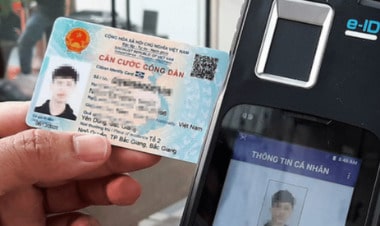Vietnam is set to implement the Law on Identity in less than a week, marking a shift from the previous 2014 Law on Citizen Identification, which was last revised in 2020. This new legislation aims to enhance the efficiency of administrative procedures, facilitate the provision of online public services, drive socio-economic development, and establish a digital citizen identification system. From July 1, iris biometric details will be collected with fingerprints and facial images when citizens apply for an ID card, SGGP reports.
The Identity Law introduces several key changes, including the mandatory collection of biometric information for citizens applying for ID cards. A clause in the law mandates that assigned state agencies will collect identification data, including facial images, fingerprints, and irises, from applicants. The move is designed to bolster the security and accuracy of identity verification processes.
The introduction of this law is expected to have widespread implications across various sectors, particularly in banking, which is at the forefront of Vietnam’s digital transformation. With 87 percent of adults in Vietnam holding at least one bank account, according to VOV World, and 95 percent of transactions being processed digitally by many banks, the integration of advanced biometric data into identity verification processes is poised to further streamline digital banking services and enhance customer security.
The government envisions that the new Identity Law will not only simplify administrative processes but also pave the way for more robust digital public services. This legislation aligns with Vietnam’s broader goals of accelerating digital transformation and fostering a secure, efficient digital economy.
The Law on Identity encompasses several key provisions designed to achieve its objectives including the establishment of a centralized national database that stores the biometric and personal information of all citizens, and provision for the creation of digital identities that citizens can use for online transactions and interactions with government services.
All citizens are required to register for the national ID card, with specific provisions for newborns, migrants, and those without prior documentation.
Vietnam is also introducing new banking regulations that require biometric authentication for transactions of 10 million Vietnamese dong (approximately US$393) at once or VND 20 million ($785) in a day. But many people have struggled to complete the remote process due to problems scanning the NFC chips in ID cards or matching their selfie biometrics, VietNamnet reports.
Article: Vietnam’s new digital ID law mandating biometrics use goes live July 1
